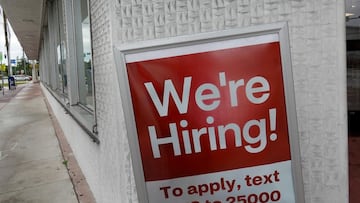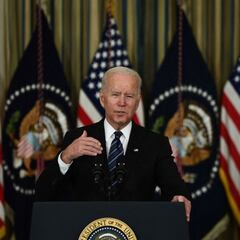How many people quit their jobs in September and why?
The BLS has reported that in September 4.4 million workers quit their job. This comes after 4.3 million voluntarily left their position in August.


In September, the same month federal pandemic-related unemployment benefits ended, 4.4 million people quit their jobs. This comes after 4.3 million left their jobs voluntarily in August.
This spring, more than twenty states cut federal unemployment benefits early as many argued that they were keeping people from reentering the workforce. This new data shows that many not have been the case given the fact that after the benefits ended, millions quit their jobs looking for new opportunities.
What industries saw the highest percent of qutis in September?
- Accommodation and food services -- 6.6%
- Leisure and hospitality -- 6.4%
- Arts, entertainment, and recreation -- 5.7%
- Retail trade -- 4.4%
- Trade, transportation, and utilities -- 3.6%
- Nondurable goods -- 3.5%
- Professional and business services -- 3.3%
- Other services -- 3.1%
- Health care and social assistance -- 2.9%
- Education and health services -- 2.8%
What is driving 'The Great Resignation'?
Compared to August 2021, 164,000 more workers quit their jobs in September. Only two sectors, real estate and rental and leasing and state and local education, recorded higher quits in September 2020.
From July to September of this year, more than 12.3 million people left their jobs voluntarily, the largest sudden increase recorded by the Bureau of Labor Statistics.
Which sectors have seen the largest number of quits between July and September 2021?
- Trade, transportation, and utilities -- 2.9 million
- Leisure and hospitality -- 2.7 million
- Accommodation and food services -- 2.4 million
- Professional and business services -- 2.1 million
- Retail trade -- 2.09 million
- Education and health services -- 1.8 million
- Health care and social assistance -- 1.6 million
- Manufacturing -- 949,000
- Construction -- 573,000
- Government -- 557,000
A poll conducted in August found that nearly fifty-five percent of workers in the United States planned to leave their jobs. For workers between eighteen and twenty, commonly referred to as Gen Zers, more than three quarters said they were looking to leave, while sixty-three percent of Millennials have the same plan.
Greater flexibility and higher pay
Related News
- Seniors report financial hardships as inflation reaches thirty-year peak
- Parents could receive bumper Child Tax Credit next month
- A guide for adjusted income tax rates in 2022
- Can a fourth stimulus check payment happen before December 2021?
Workers are looking for greater flexibility in their jobs. While many may believe pay is the primary motivator, more workers reported flexibility as their main reason to quit. However, motivations tend to vary on a variety of factors. For example, flexibility tended to be a stronger motivator for those with higher incomes and advanced degrees.
The survey found that seventy-two percent of workers making under $30,000 a year planned to find a new job, while the rate among people with incomes over $80,000 was forty-forty percent.
Inequities in raises uncovered
A new poll from Bankrate, a financial news organization, found that more than half -- fifty-six percent -- of workers have not received a pay increase in the last year. The survey found that around twenty-eight percent of workers had received a raise, but there are income disparities who saw a pay increase.
Which income groups were most and least likely to see a pay increase?
- $75,000 and above -- 39%
- $50,000 to $74,999 -- 29%
- $30,000 to $49,999 -- 25%
- $30,000 and under -- 9%
Related stories
Source: Bankrate
The inequities within the results are alarming. When the pandemic began and low-wage essential workers were applauded for their heroism and more than a year later, the data shows that many have not been compensated for the risks they took.

